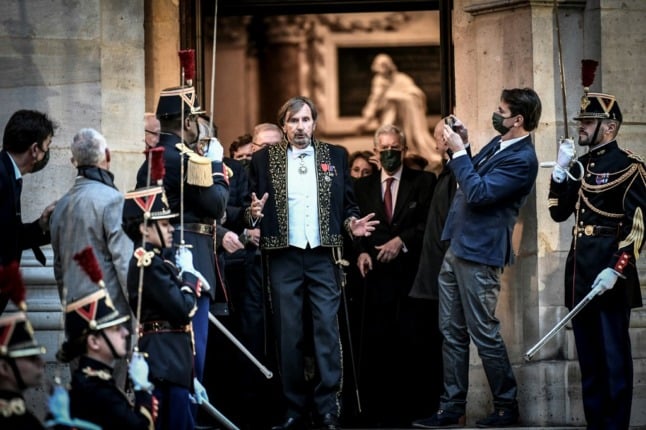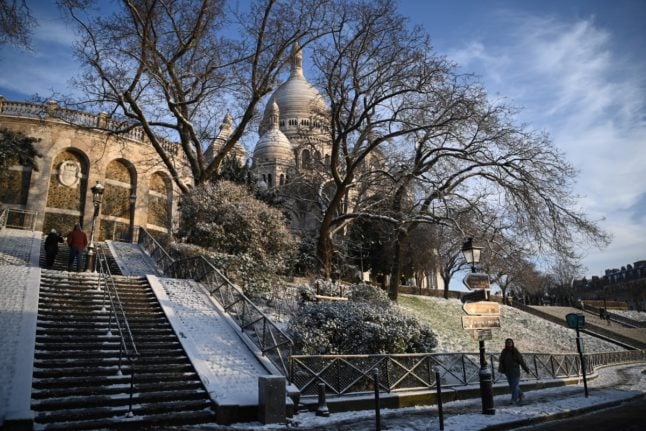Why are the French . . . so protective of their language?
Close to 300 million people speak French.
It is the fifth most spoken language around the world, the fourth most used language on the internet and the official language of 29 countries. Africa is the continent with the largest number of French speakers.
More than perhaps any other language in the world, the French language is heavily regulated.
The Académie Française, a sort of linguistic police created in 1635, has the final say on what counts as real French. The dozens of members who sit in the academy at any one time are known as “The Immortals”. They have an official uniform and carry a sword. Its 35 current members are overwhelmingly white and male – although this is perhaps the most diverse Académie in history.
READ ALSO Swords, immortality and wifi: 5 things to know about Académie française
In the 19th century, regional languages, of which there are some 75 in mainland France, were banned in schools. In 1992 the French parliament amended the constitution to cement the idea that “the language of the Republic is French”. That same year, France was the only country in Western Europe not to sign the Charter on Regional and Minority Languages passed by the Council of Europe.
Multiple laws have been passed to ban foreign words when French alternatives are possible. And the use of Franglais and gender-neutral language frequently comes under fire from the country’s political establishment.
So what’s going on? Why are the French so defensive of their language?
Centralisation of power
Maurice Druon, a former head of the Académie Français, once said “The language of a people is its soul”.
At the time of the Académie’s creation, mainland France was still undergoing a period of expansion. The sense of France as a unified state was far less defined as it is today – and regional identities were far stronger.
By centralising linguistic authority in Paris and suppressing regional dialects, the King hoped to create a sense of a single, unified idea of France. In doing so, it was reasoned, governing would be easier and revolt less likely.
Declining global status
The main reason that France is so defensive of its language today is because of the country’s declining global status.
French was once the language of international diplomacy, even more so than English. This was partly to do with the country’s imperial status as an empire stretching from Southeast Asia to the Caribbean and military might stretching back as far as the Early Modern period.
But since the mid-20th century decline of France as an imperial power, this is no longer the case, with English becoming the dominant language in international organisations such as the UN. Today, most French school children learn English as a second language.
As part of an effort to push back against this, in 1970 France created the Organisation internationale de la Francophonie, a sort of French answer to the British Commonwealth, devotes enormous resources to the promotion of French worldwide.
It is not only a face-saving mission against the tide of anglophone globalisation but also a shrewd economic initiative. The French language is an important medium through which French cultural exports like cinema and music is exported.
Social conservatism and electioneering
The recent pushback against gender inclusive-pronouns, like iel, can be seen as a form of conservative pushback against a perceived ‘wokeness’ among certain sections of the population.
The culture wars that have consumed British and American societies in recent years appear to have arrived in France.
With an election fast approaching, French President Emmanuel Macron’s main political opponents come from the Right of the political spectrum.
When the Education Minister, Jean-Michel Blanquer, comes out with lines like “Inclusive writing is not the future of the French language”, it is possible that he is playing into a reactionary narrative aimed at seducing right-wing-minded voters.
Everyday French
We should also point out that there is ‘official’ French and then there is the language that French people actually use. Dictats on the use of English apply only to official documents and commericial use like adverts, while the Académie française has no actual legal standing for its pronouncements.
Listen to the everyday chat of a group of French people, especially younger ones, and you will notice that it is littered with English words, from cool to le wifi, le come-back to le buzz.
READ ALSO



 Please whitelist us to continue reading.
Please whitelist us to continue reading.
Your headline is misleading. It’s not the French people that are protective of the language, but the Académie Française, which fails to understand that all languages are a living being and are always evolving. The vast majority of under 50s feel that this out of date Académie Française is holding France back in the modern international commercial world.